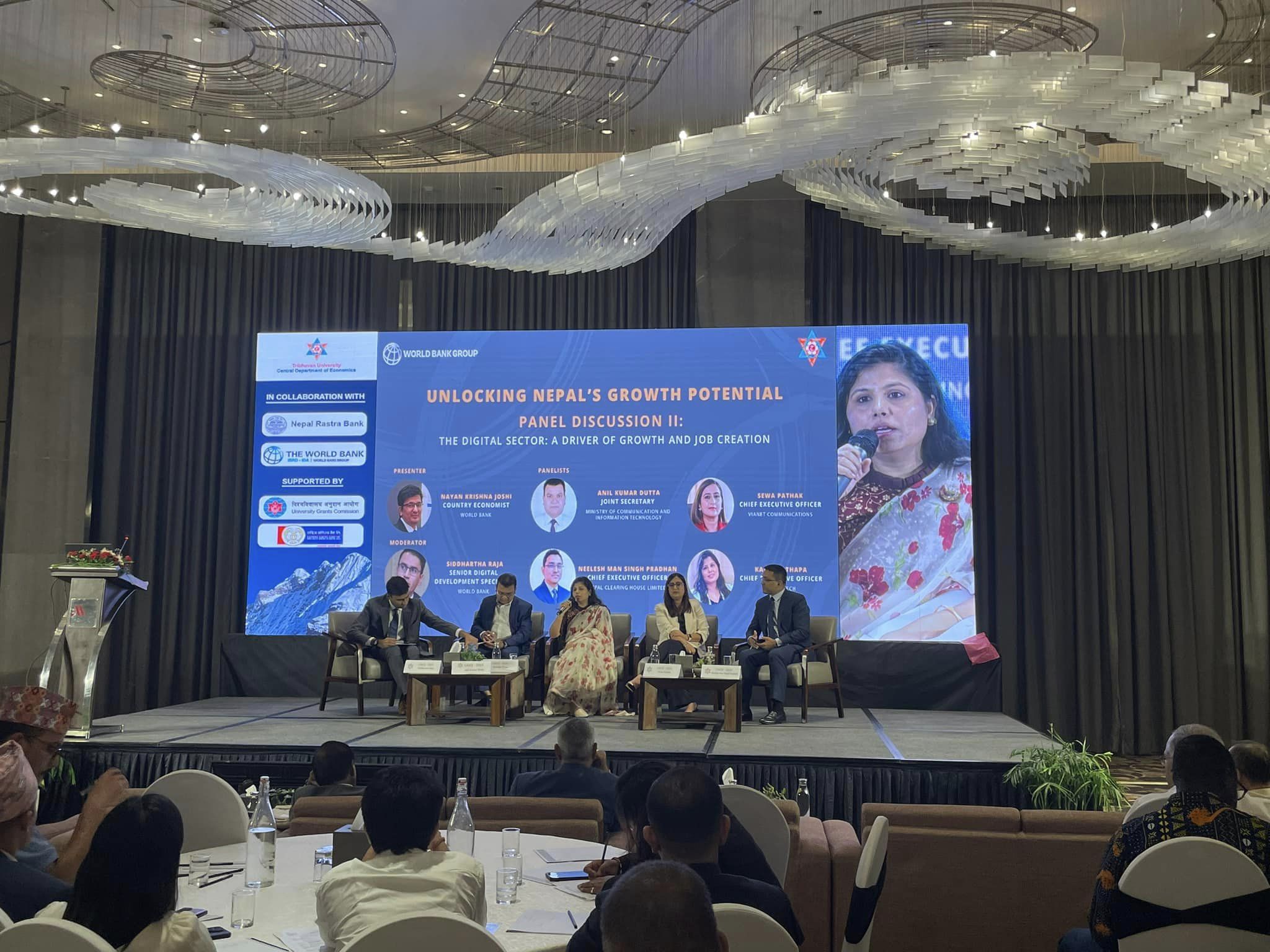
The Central Department of Economics (CEDECON) at Tribhuvan University held its highly anticipated Annual International Conference in Economics, centering on the theme “Development Amidst Environmental Crises and Climate Change.” The conference brought together an esteemed array of academics, policymakers, and experts to discuss the urgent challenges and opportunities presented by the interconnected crises of development and climate change.
Opening Lecture on the Climate-Development Nexus in the keynote lecture, Prof. Dr. Bishwambher Pyakurel, a renowned economist and expert in environmental policy, emphasized the profound link between climate change and economic development. His lecture, titled "The Climate-Environment Nexus: Understanding the Interconnected Risks and Opportunities," delved into how environmental degradation and climate crises are reshaping the global economic landscape Dr. Pyakurel highlighted the complexities of climate impacts, particularly on vulnerable economies like Nepal's.
“Climate change,” he noted, “is not just an environmental issue but a multi-dimensional challenge that encompasses economic stability, public health, and social equity.” He emphasized the need for comprehensive policy responses that recognize the interconnectedness of environmental and economic risks, urging governments and international bodies to prioritize climate resilience in development agendas.
Technical sessions on key development issues the conference featured a series of technical sessions addressing various facets of economic growth, governance, and environmental sustainability. Topics covered included growth distribution and welfare, governance and inclusion, labor market dynamics, gender and employment, agriculture and food security, and the informal economy. A particular highlight was the session on energy, environment, and climate change, which explored the critical intersection of these fields in shaping Nepal’s development trajectory. Presenters shared research on the implications of climate change for Nepal’s agricultural sector and its cascading effects on food security and the informal economy.
Panel Discussions: Hydropower and the Digital Economy; one of the most eagerly awaited panels focused on hydropower’s potential to boost economic growth in Nepal. Panelists examined how harnessing Nepal’s vast hydropower resources could contribute to sustainable development and energy security, positioning the country as a regional leader in renewable energy production. The digital sector also garnered attention as a driver of growth and development, with discussions on how digital transformation could complement traditional sectors like hydropower in fostering inclusive economic growth.
Climate Change and South Asia: A Regional Perspective during a dedicated session on climate change and its impacts on South Asia, two prominent papers were presented. Dr. Mani Nepal, lead economist at SANDEE/ICIMOD, discussed the socio-economic implications of environmental change in South Asia’s mountainous regions. His paper, “Mountains, Climate and Environmental Change: Socio-Economic Implications in South Asia,” highlighted the unique vulnerabilities faced by mountain communities and underscored the urgent need for region-specific climate policies.
Dr. Meghnath Dhimal, Chief of the Health Research Section at the Nepal Health Research Council, presented research on the public health impacts of climate change in South Asia. His paper, “Climate Change as a Public Health Crisis: Evidence from South Asia,” provided compelling data on how rising temperatures and changing weather patterns are exacerbating health crises in the region, with disproportionate effects on marginalized communities.
Plenary Lecture: Building a Climate-Resilient Economy in the concluding plenary lecture, Dr. Abrab Chaudhary from the Said Business School at Oxford University offered insights into building a climate-resilient and regenerative economy. His presentation, “Strategy for Sustainable Growth: Building a Climate-Resilient and Regenerative Economy,” emphasized the need for a transformative economic strategy that integrates sustainability and resilience at its core.
Dr. Chaudhary called for innovative approaches to economic growth that not only mitigate the effects of climate change but also promote regeneration and long-term sustainability.The CEDECON conference underscored the critical need for interdisciplinary collaboration in addressing the twin challenges of development and climate change.
As Nepal and the broader South Asian region face mounting environmental pressures, the insights and strategies shared at this conference will be vital in shaping future policy and research agendas.